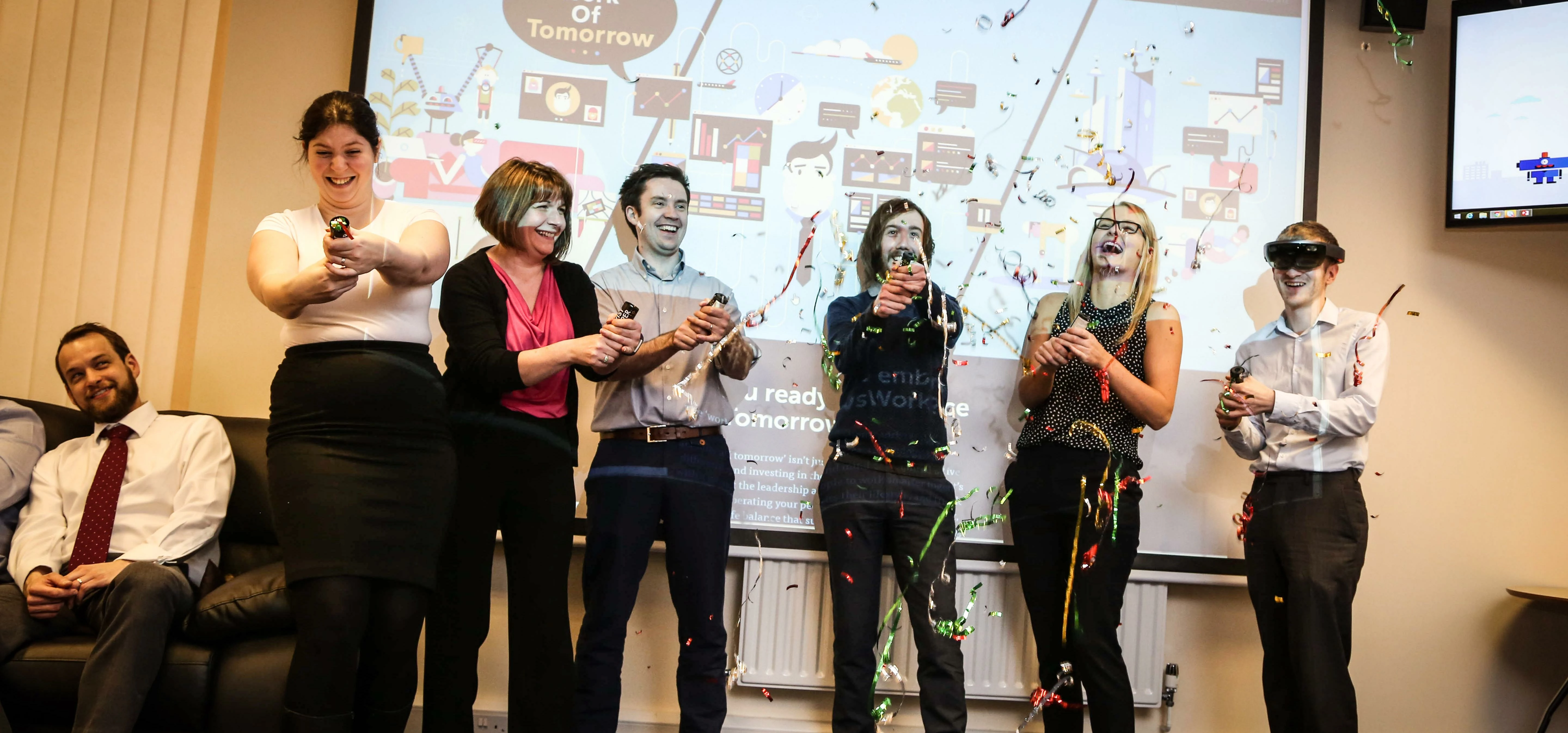
Partner Article
Waterstons launches ‘The Work of Tomorrow’ campaign
Durham-based business and IT consultancy Waterstons has launched a new campaign to highlight how businesses can achieve ‘The Work of Tomorrow’ and do so long before any investment in new technology.
The campaign is designed to engage businesses in a discussion about what tomorrow’s work will look like and not just from a technology perspective.
Simply by challenging accepted business practice and championing leadership, culture and values, firms can create an environment that will foster creativity, innovation, improve efficiency and benefit communication.
“Surprisingly despite the meteoric rise of the internet, social networks and the smartphone generation many of the tools we use today haven’t really changed in 20 years,” said Waterstons specialist in communication and collaboration Christopher Grosberg.
“Two programs used by most of us every day are the word processor and email. While they have both changed in look and feel they are fundamentally no different from when they were developed.
“Yet by looking at changing the way we work we can develop a new flexibility of approach that fits into our work patterns more easily, addressing common issues such as drowning in email. This occurs because despite email still being a powerful tool, it is now being used in too many roles it is ill suited for.
“If we change the way we use email in the workplace, separating office communications into different channels, we can immediately see how this problem can be addressed.
“For instance, non-urgent messages can be uploaded to an intranet or included on a newsletter, collaboration on documents can now be achieved through file sharing platforms and one-to-one communications can be held via instant messaging services.”
This is just the tip of the iceberg; why not virtualise desktops and allow people to get the same corporate desktop experience wherever they are working; consider increasing the use of mobile devices to enable your workforce to work away from a desk; introduce video conferencing to reduce the amount of travel between sites, the list is long.
“The technology we need to do this is already here and it is more about working smart and breaking out of our immediate modes of behaviour to achieve better results,” he concluded.
This was posted in Bdaily's Members' News section by 2B Communications Limited .
Enjoy the read? Get Bdaily delivered.
Sign up to receive our daily bulletin, sent to your inbox, for free.








 Raising the bar to boost North East growth
Raising the bar to boost North East growth
 Navigating the messy middle of business growth
Navigating the messy middle of business growth
 We must make it easier to hire young people
We must make it easier to hire young people
 Why community-based care is key to NHS' future
Why community-based care is key to NHS' future
 Culture, confidence and creativity in the North East
Culture, confidence and creativity in the North East
 Putting in the groundwork to boost skills
Putting in the groundwork to boost skills
 £100,000 milestone drives forward STEM work
£100,000 milestone drives forward STEM work
 Restoring confidence for the economic road ahead
Restoring confidence for the economic road ahead
 Ready to scale? Buy-and-build offers opportunity
Ready to scale? Buy-and-build offers opportunity
 When will our regional economy grow?
When will our regional economy grow?
 Creating a thriving North East construction sector
Creating a thriving North East construction sector
 Why investors are still backing the North East
Why investors are still backing the North East